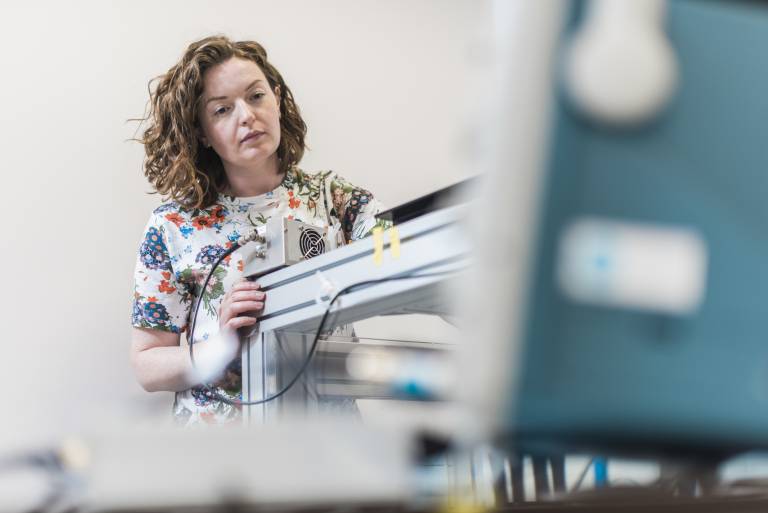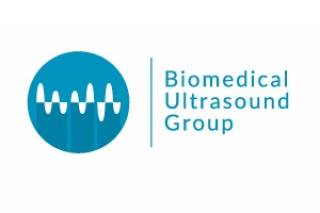Elly Martin awarded UKRI Future Leaders Fellowship
6 May 2020

Dr Eleanor (Elly) Martin was recently named by the government as one of the recipients of the prestigious UKRI Future Leaders fellowships, designed to identify the research leaders of tomorrow and support them in their academic careers. In this interview, Elly discusses her research focus, her plans for the future, and her advice to others starting out.
How has your research evolved during your time at UCL?
I’ve been in the Department since 2014, when I joined the Biomedical Ultrasound Group. When I first came into the group, we were interested in high intensity focused ultrasound for the treatment of pain caused by metastatic tumours in bones. The aim is to use focused ultrasound to heat the bones and nearby tissue, destroying the nerves which cause pain. I was exploring how accurately we could predict this heat treatment, using computational models.
Since then, our focus has shifted towards a different type of ultrasound therapy: ultrasonic neuromodulation. This is a non-destructive, non-invasive therapy which works by altering the activity of cells in small regions of the brain using ultrasound waves focused through the skull. It is currently being investigated for treatments for a wide range of conditions from Parkinson’s, to depression and OCD.
I’m now investigating how accurately we can predict the ultrasound field inside the brain using computational models, so that we can optimise the treatments and make them well-controlled, safe and effective.
Another new direction has been developing the system to deliver these treatments, as well as getting involved with trials with healthy volunteers to examine how ultrasound affects the brain.
You’ve been awarded a UKRI Future Leaders Fellowship. What will you be working on as part of that award?
I’ll be looking at a new application of ultrasound, investigating how it can be used for warming biological cells and tissues after cryopreservation (storage at low temperatures).
Many donated organs and tissues end up going to waste because of the short time in which they have to be transplanted into patients. If we had a way of preserving organs and tissues for longer periods of time, more of them could be used, over larger geographical areas, and with better matching to recipients. One way of doing this would be through cryopreservation.
However, one of the current barriers to this is that when the tissues are brought back from storage, the warming has to happen uniformly and at a very fast rate to avoid damage. That becomes difficult once the samples are larger than a few ml, and can’t be heated through quickly using a water bath.
I will develop a system using ultrasound to quickly and uniformly warm larger samples, by delivering energy throughout the volume in a controlled way. Warming larger samples of cells and tissues without damage will help to increase the availability of tissues for transplant, cell therapies and tissue engineering, and may one day enable us to store whole organs.
What development in the field would you most like to see within the next decade?
Further advances towards real-time planning of ultrasound energy delivery would open up a lot of possibilities. It would allow ultrasound therapies to be performed without having to reposition patients precisely to match up with previous images, and also make it easier to heat larger volumes of tissues or organs without knowing in advance how their properties might change.
Another would be the use of comprehensive patient-specific treatment planning for ultrasound therapies, rather than “point and shoot” type methods often used at the moment.
What advice would you give to researchers who are just starting out in this field?
In general, it’s good to always be learning new things; this is what keeps me interested. I think it’s important to figure out what you’re good at, how you like to work, and to be surrounded by people that challenge you. If you’re not sure, find research areas that are new and gaining in popularity, e.g. ultrasonic neuromodulation, in which research is rapidly growing – then it’s a good time to get involved!
Something that has also been very important for me is meeting people. Get to know people, chat to them at conferences, meetings, workshops and summers schools, join committees and get to know those people. They will be your future colleagues, collaborators, and providers of references and letters of support.
 Close
Close



